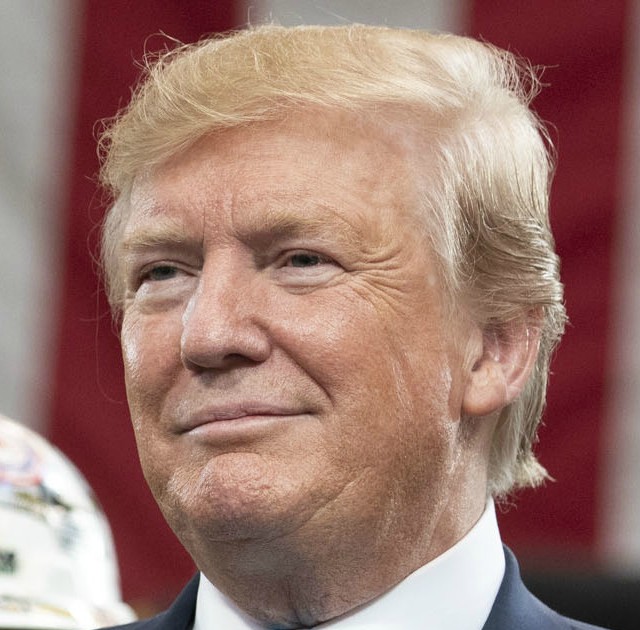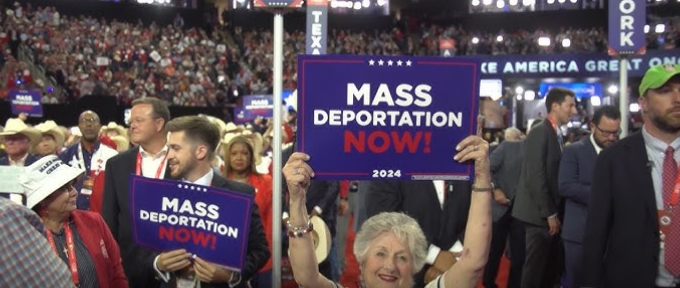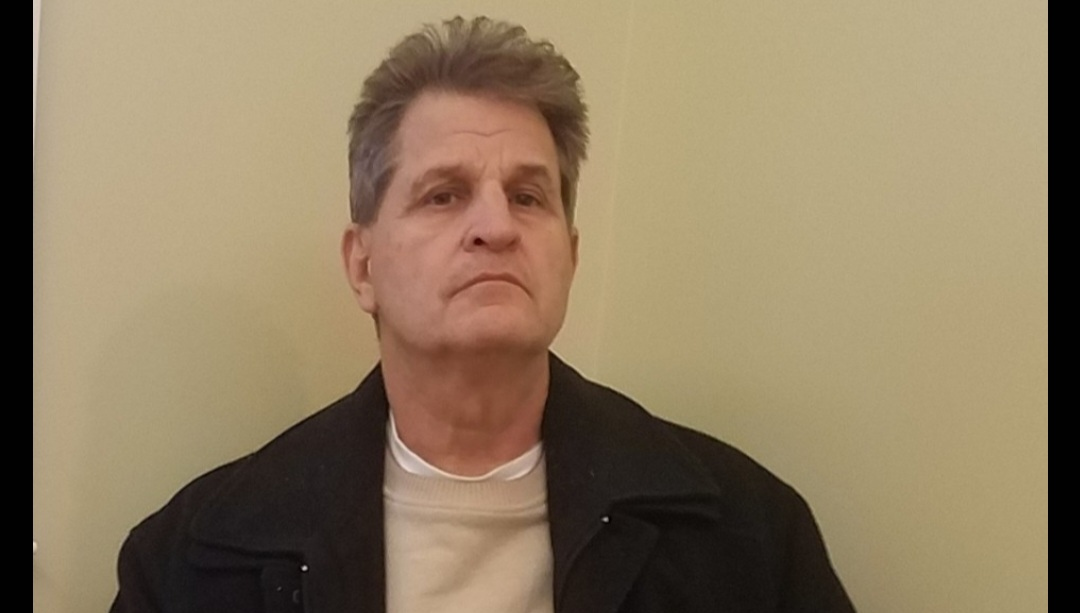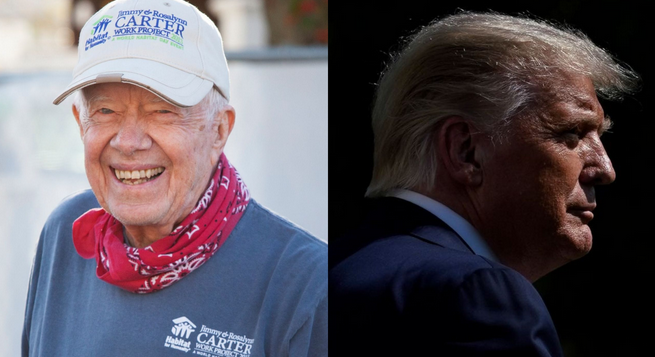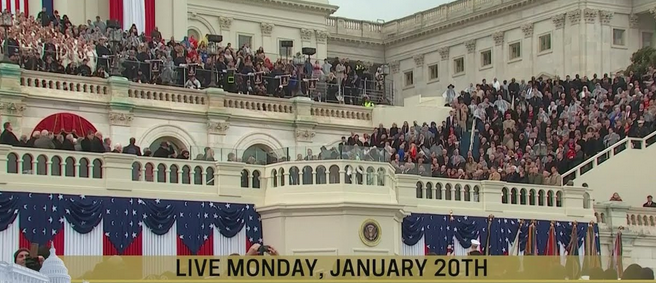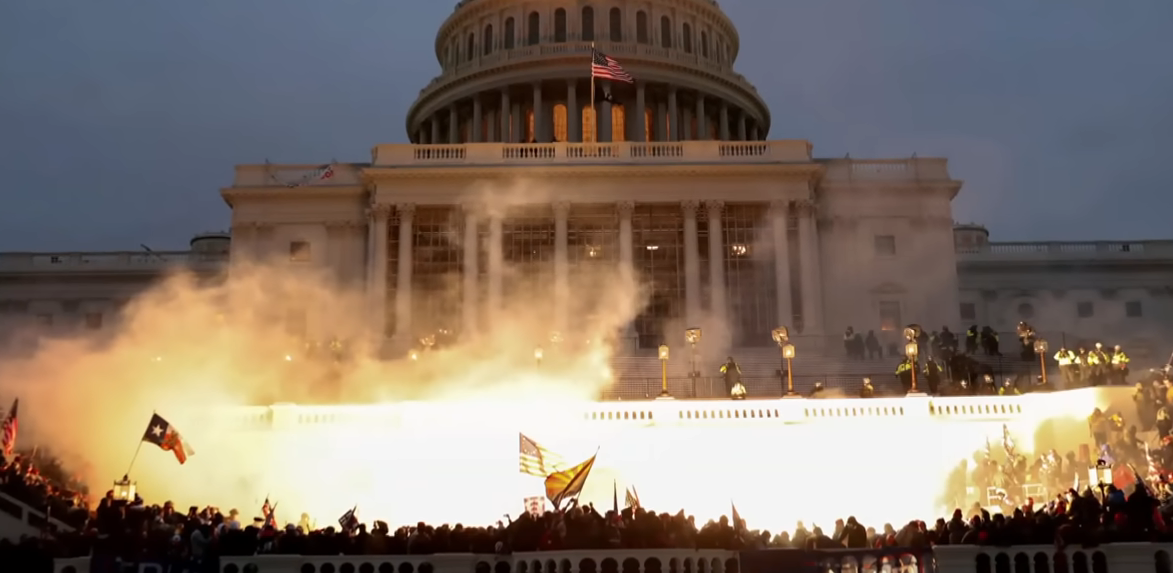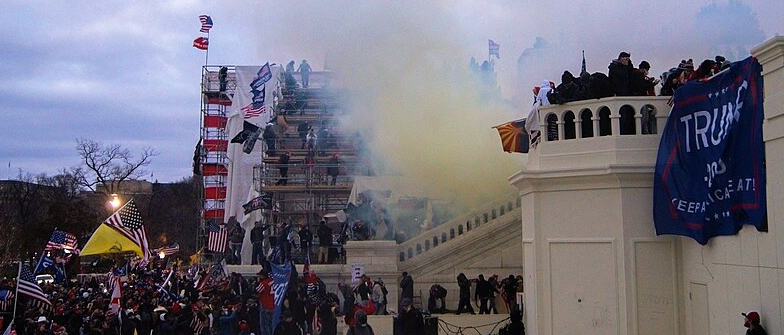[American Racism\” Trump Effect”\University of California, Riverside]
The team’s findings, published online last week in the British Journal of Political Science, suggest Trump’s inflammatory remarks on the campaign trail emboldened particular members of the American public, giving them license to express deeply held prejudices.
Photo: Wikimedia Commons
What impact does Trump’s racist remarks have on normalizing expressions of prejudice? A new study from a team of political scientists at the University of California, Riverside, has found empirical support for what they term Trump’s “emboldening effect.”
When Donald Trump formally announced his presidential candidacy in a June 2015 speech, he declared, among other comments, that “when Mexico sends its people, they’re not sending their best,” referred to Mexican immigrants as rapists, and reiterated his intention to build a wall at the border.
What impact did Trump’s remarks have on normalizing expressions of prejudice? In the years since the election, many have speculated his racially inflammatory speech empowered people with latent prejudices to finally act on them — a phenomenon known as the “Trump effect.”
Now, a new study from a team of political scientists at the University of California, Riverside, has found empirical support for what they term Trump’s “emboldening effect.”
The team’s findings, published online last week in the British Journal of Political Science, suggest Trump’s inflammatory remarks on the campaign trail emboldened particular members of the American public, giving them license to express deeply held prejudices.
From UCR, the study’s co-authors include Benjamin Newman, an associate professor of public policy and political science; Jennifer Merolla, a professor of political science; Sono Shah, a doctoral candidate in political science; Loren Collingwood, an associate professor of political science; and Karthick Ramakrishnan, a professor of public policy and political science. Co-author Danielle Casarez Lemi received her doctorate in political science from UCR in 2017.
To better understand the impact of Trump’s racially inflammatory rhetoric, the researchers surveyed a total of 997 respondents in two online waves in spring 2016, during presidential nomination season.
In the first wave, respondents provided demographic information and their political orientations. To measure respondents’ existing prejudice, the researchers asked them to rate how well the words “intelligent,” “lazy,” “violent,” and “here illegally” describe “most Hispanics” in America. These are measures often used to capture stereotypes people hold about the Latinx population.
During the second wave about a week later, each respondent read one of five articles generated by the researchers. The articles drew on real election content related to either campaign finance reform or immigration and discussed the positions of Hillary Clinton and either Jeb Bush or Donald Trump.
Only some articles featured examples of Trump’s racially inflammatory speech; of those, certain articles also included text about other political elites condoning or condemning his remarks.
After reading one of the five articles, each respondent read a short vignette and was asked to rate the acceptability of the behavior depicted by a character in the vignette.
“The purpose of this vignette was to depict a mundane situation in which an individual a) harbors prejudice and b) engages in discriminatory behavior,” the researchers explained.
They noted that while most respondents described the behavior featured in the vignette as completely unacceptable (49%) or unacceptable (42%), the remaining 9% considered it normatively neutral or acceptable, denoting tolerance of prejudiced behavior in this instance.
The purpose of the activity was twofold: First, the researchers wanted to see whether respondents’ tolerance of the behavior featured in the vignette could be linked to their existing prejudice, as measured during the first wave.
Additionally, the team was interested in determining if exposure to Trump’s racially inflammatory remarks would have bearing on whether respondents with existing prejudice would subsequently demonstrate more tolerance of the behavior featured in the vignette.
They found exposure to Trump’s racially inflammatory speech did have an emboldening effect, making individuals seem to feel more comfortable expressing their prejudice.
Moreover, when respondents weren’t exposed to such rhetoric, the opposite was true: Prejudiced individuals appeared to suppress their prejudice by actively denouncing prejudiced behavior.
“The emboldening effect of an elite like Donald Trump is most pronounced in a context where citizens are given signals that the political system tolerates prejudice by allowing candidates who engage in prejudiced speech to continue their campaigns without sanction,” they added. “Last, we find that condemnation by other elites does little to suppress prejudice once it is activated.”
Read the full story here: https://news.ucr.edu/articles/2020/02/24/research-finds-support-trump-effect
About UC Riverside The University of California, Riverside (www.ucr.edu) is a doctoral research university, a living laboratory for groundbreaking exploration of issues critical to Inland Southern California, the state and communities around the world. Reflecting California’s diverse culture, UCR’s enrollment is more than 24,000 students. The campus opened a medical school in 2013 and has reached the heart of the Coachella Valley by way of the UCR Palm Desert Center. The campus has an annual statewide economic impact of almost $2 billion. To learn more, email [email protected].
